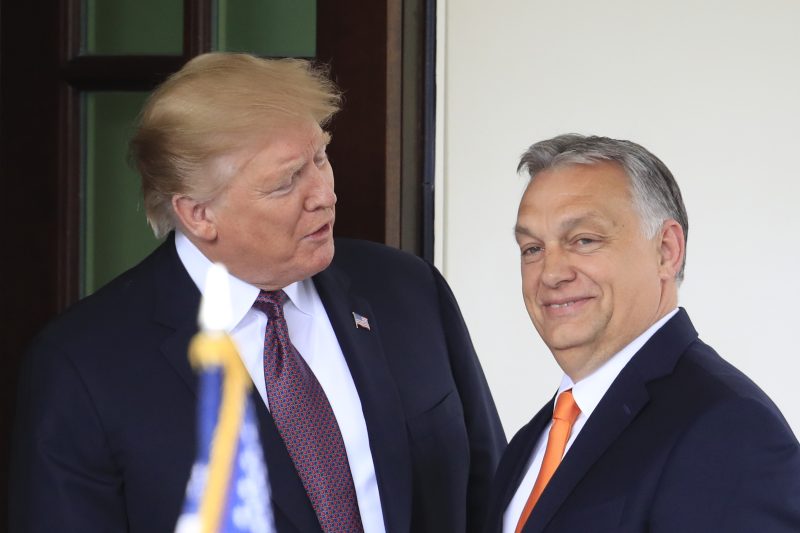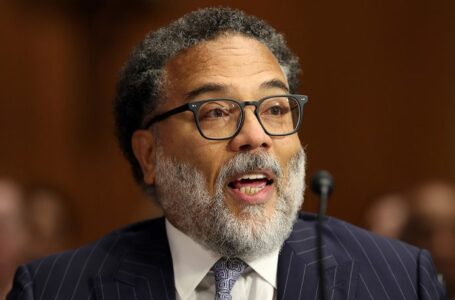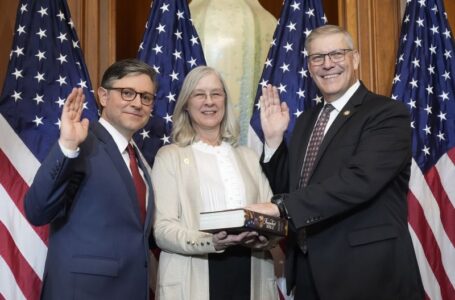Democrats hold on to open state legislature seats in Virginia special elections
How much is Trump chipping away at NATO support?


The past month has been a whirlwind for the politics of NATO.
Former president Donald Trump continued to undermine the alliance — and scare allies — by saying he would encourage Russia to “do whatever the hell they want” to NATO allies who don’t pay enough. And a Republican U.S. senator is blaming the United States and NATO for Russia’s invasion of Ukraine.
Still, the path for NATO to expand yet again cleared Monday, with the final holdout country endorsing Sweden’s ascension. That holdout: Hungary, which is led by Trump (and Vladimir Putin) ally Viktor Orban. Sweden will join Finland, which became a NATO country last year and vastly expanded the Russia-NATO land border.
That split screen highlights both the uncertain domestic politics of NATO and its potential centrality in the years to come, in the face of a belligerent Putin.
So where does the American public stand?
For now, it remains in NATO’s corner — even as it’s clear that the continued attacks from Trump and his allies have had an impact on the political right.
First, the good news for the alliance:
A Quinnipiac University poll last week showed that more than 8 in 10 Americans said NATO was important to U.S. security. A majority — 56 percent — said it was “very important.”An Economist/YouGov poll showed that Americans had a favorable opinion of NATO, 53 percent to 22 percent. (The rest were undecided.)
Americans also generally support the prospect of Ukraine joining NATO:
The YouGov poll showed that Americans said it was a good idea rather than a bad one, 46-19. Even Republicans leaned in favor, 36-30.A Chicago Council for Global Affairs-Ipsos survey shared with The Washington Post showed that 69 percent of Americans favored Ukraine’s admission to NATO. That included 64 percent of Republicans.
But these surveys also get at the “but.”
While Americans as a whole are about as supportive of NATO as they were shortly after Russia’s invasion in early 2022, Republicans have moved away from the alliance. A significant chunk of them also align with Trump’s comments about encouraging Russia to do “whatever the hell they want” to NATO countries that don’t meet spending targets.
Republican support for Ukraine joining NATO has moved from 50 percent in favor with 19 percent opposed in the YouGov polling in July to 36-30 today.
Similarly, the Quinnipiac poll showed that the percentage of Republicans who label NATO “very important” has dropped from 40 percent in April 2022 to 33 percent today. Nearly as many label it either “not so important” (17 percent) or “not at all important” (12 percent).
The Quinnipiac poll also gave people a choice between pulling out of NATO because other countries don’t pay enough and staying in because NATO is so important to global security. Republicans aligned with the former sentiment more, 48-43, suggesting that an attempted NATO exit in Trump’s second term could have a base.
Perhaps the most striking numbers, though, have to do with Trump’s comments.
The Quinnipiac poll showed that Americans said Trump’s comments were a “bad idea,” 71-18. The YouGov poll showed that Americans disapproved, 54-23.
But in both cases, Republicans with an opinion were actually about evenly split: 38 percent called Trump’s comments a “good idea” (versus 39 percent saying “bad idea”), and 35 percent approved of his comments (versus 39 percent disapproving).
Even more notable was the split within the GOP. While Republicans who don’t identify as “MAGA” disapproved by a similar margin to Americans overall, 48-27, MAGA Republicans actually approved 46-29.
It also bears noting that, while Trump’s comments were somewhat vague and suggestive of Russia attacking those countries, the YouGov question specifically tested whether people supported “encouraging Russia to take action” against those countries.
Nearly half of MAGA Republicans supported actually doing that.
Some of this is undoubtedly Trump loyalists being told that Trump said something and deciding to align with him; the poll showed only about one-quarter of Republicans said they had heard “a lot” about Trump’s comments. And perhaps some see strategic value in ploys like this increasing pressure on NATO allies to pay more — the ostensible purpose of Trump’s comments.
But we can’t assume that support for NATO will remain as strong as it currently is. Even as NATO continues to expand, the American political right is showing that its support for the alliance is relatively wide but not terribly deep. And it’s clearly receptive to Trump’s provocations.











